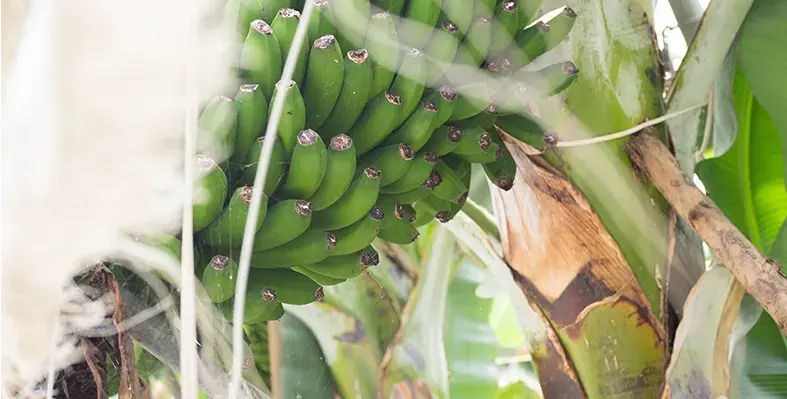Banana growers along KwaZulu-Natal’s coast are facing a devastating crisis as Banana Bunchy Top Virus (BBTV) tears through plantations, wiping out crops and threatening the livelihoods of rural communities.
The KwaNyuswa Agricultural Farm in Ramsgate has been hit especially hard, losing 3,000 banana plants since February 2025. The farm, which is community-owned, estimates its financial losses at around R500,000 – a blow that places 103 indirect beneficiaries at risk.
KwaZulu-Natal has long been fondly regarded as “kwelikabhanana”, a reflection of the province’s long-standing relationship with banana production. Bananas remain central to the Roselands community, forming both a cultural identity and a core source of income. At KwaNyuswa Agricultural Farm, a 25-hectare operation reclaimed in 2008, bananas have consistently been the flagship crop and the main revenue driver for the Roselands community trust.
That success, however, is now under severe threat. The highly destructive BBTV, which affects both banana and plantain plants, has rapidly spread across the region. The virus causes stunting and a characteristic “bunched” arrangement of newer leaves, which appear narrower and more upright than normal. Infected plants seldom produce fruit, making the disease catastrophic for farmers. Spread by the banana aphid or contaminated planting material, BBTV demands intensive labour for scouting and control—driving production costs sharply upward.
The severity of the outbreak prompted the Deputy Minister of Agriculture, Nokuzola Capa, to meet banana growers from the Ugu District Municipality on 26 September 2025. On 12 November, she delivered agrochemicals to commercial, smallholder, and subsistence farmers battling the virus. Capa stressed that “the threat of BBTV in the Ugu District Municipality of KZN has been a persistent issue since 2015” and noted that the department had invested substantial resources in chemical support, adviser training, and community awareness.
These interventions have been welcomed by growers, but many say chemicals alone will not be enough. Sphephelo Ngubane, KwaNyuswa’s manager of farm operations and technical support, told Daily Maverick that replanting is essential for recovery. “We need items that are essential for the recovery of lost yields. This includes banana seedlings, MAP planting fertiliser, top dressing fertiliser, and irrigation input… [and a] packhouse revamp,” he said.
Ngubane emphasised that while the chemicals will help control aphids especially for small-scale farmers ongoing training, scouting, and record-keeping remain critical. “We continuously scout for new or primary symptoms… The most essential thing is to ensure field monitoring through scouting and record keeping… and to follow treatment protocols and recommendations by the research institutions such as ARC,” he said.
He added that more research is desperately needed, noting a lack of accessible information for farmers facing economically damaging diseases. Support from regional organisations such as the South Natal Banana Association has been invaluable, he said.
Ngubane concluded with a reminder of what is at stake for the South Coast: “Bananas are our community’s backbone. If we control BBTV now, we not only save a crop, but a whole rural community.”





